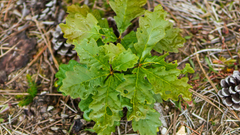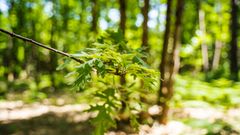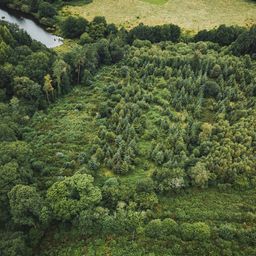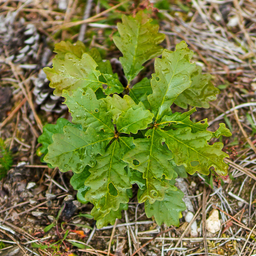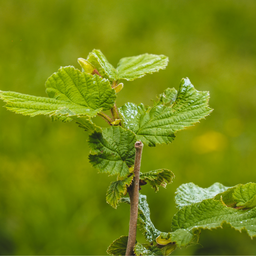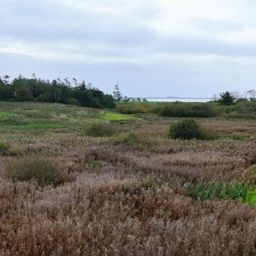Jun 30, 2020
The future of forestry according to EcoTree (that’s us!)
How can the future of forestry be sustainable? We believe our movement rewarding forestry involvement is the answer. And that it’s OK to get something back!

We’d like to start with a bit of mind blowing... Forests can provide and flourish at the same time. This is at the heart of what we’re doing at EcoTree. Shifting people’s perspective from seeing forests as either something to protect (good) or cut down (bad). Because humans have a bad habit of messing everything up when it comes to taking what we need from the environment to survive. In the future we envisage, it’s not about survival. It’s about flourishing. And we’re passionate about growing evidence that it’s actually good for our planet to get everyone involved in sustainable timber production.
Our FAQ page has (hopefully) everything you’ve ever wanted to know about how our products and our forestry work. But here, we’d like to take you into the why of it all. To answer the questions on the future of forestry that we actually get from people (maybe even from you!) on the ethical foundations of our growing movement.
Why can’t we just leave the preservation of forests to charity?
Trees are vitally important to everyone. And everyone loves trees. But it’s not reasonable or sensible to hope that individuals can protect them financially out of the good of their hearts. We’ve all seen just how quickly global markets can change and how this impacts on ordinary people and environmental charities. And that’s why our solution for the future of forestry is so ground-breaking. Because we’re giving individuals the ability to get involved in the preservation of forests without the worry of finding the money to do so. Buying a tree in an EcoTree forest pays for itself. So we can put forestry in everyone’s hands in a more sustainable and satisfying way than a donation when funds allow.
Is it ethical to get something out of sustainable action?
It absolutely can be! Provided it’s done in the right way of course. In fact, adding a financial incentive is a proven way to get more people involved in sustainable action. Inspiration for our EcoTree model actually came from an unexpected source: empty cans. In some Scandinavian countries, like Denmark, you get a small amount of money back when you return a used can for recycling. This system has resulted in an increased rate of return on recyclable cans and bottles. Hooray! But here’s why EcoTree is one step beyond this... With the cans, you pay a tiny bit more in the first place and get that money back later. But with EcoTree, the money you pay to buy the tree will actually double over the tree’s lifetime. Even more reason to get growing!
Isn’t this just speculation of the forest?
We are foresters. And our ambition for the future of forestry is to make everyone a forester. The financial benefits of EcoTree are simply a way to open it up to everyone. To make forests a living, breathing asset to be protected by more people than have the privilege of doing it today. We don’t promote any form of speculation. And in fact, we’re pretty honest about just how much time it’s going to take for our tree owners to get that money back. We’re talking about trees, after all. So if you’re in it with EcoTree, you’re in it for the long haul. You’re going to have to wait until your tree has supported a rich array of plant and animal life and contributed to the planet’s carbon sink, before you see your money paid back. But doesn’t that sound worth it?!
But isn’t it bad to sell and own something as natural as a tree?
You might not have thought about this before, but a tree always belongs to someone. The vast majority of trees on the planet are governmentally owned and, thankfully, over 700 million hectares are protected. But a small portion of trees on the Earth are privately owned, and used for things like timber and food production. It’s our ambition to spread the EcoTree movement as far as possible, within this second group, to grow vibrant and diverse forests to maturity for sustainable timber production. Timber is a far superior resource in terms of environmental impact to many other raw materials we use as humans in our everyday lives. So in this sense, it’s perfectly natural to sell, own and selectively cut some of the Earth’s trees.
Who benefits from EcoTree?
As many people as possible! As foresters, it seemed like the most natural thing on Earth to spread the benefits, along with the responsibility, for our trees to a wider community. That’s why the financial benefit for tree owners needed to be as simple and appealing as possible. And you can’t get more appealing than 100% of the profit, can you?! Of course, we need to mention another group that benefits from EcoTree. The plants and animals in the forests we grow or those we buy to reforest or improve. Our forestry principles are inspired by a close to nature approach and put biodiversity at the heart of our work. And all this means we benefit too at EcoTree. Who wouldn’t want to go to work every day when your work was doing this much good!
Who are forests for anyway?
You’ve probably sensed our answer to this one already… Everyone. And while we all love forests and know the mental and physical benefits of being in the forest, many people feel detached from them. Our movement will bring the future of forestry into the homes of all our tree owners and our tree owners will hopefully feel part of their forests. And with ownership comes responsibility. It surprises many people to learn that if forests are to be as effective as possible in helping to combat climate change, they need some gentle intervention. They need help keeping fungi in check. Disease prevention. Thinning. That’s why our professional foresters maintain our forests and ensure that we maximise both the preservation of biodiversity and carbon capture.
So if you haven’t had a look at the different ways you can join our growing movement, you can here! And if you’d like to contact us for even more information on the work we’re doing for the love of trees, you can follow us on Facebook, Instagram, and LinkedIn or get in touch here.


